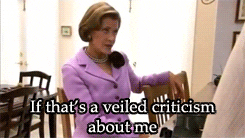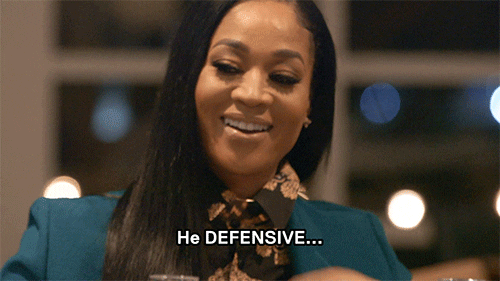4 Forms Of Conflict And How To Tackle Them
Recognise the shade!
We all like to think that we’re the chilled one in our friendship circle. That we’re great at keeping our cool, while also understanding and tackling different kinds of conflict without having to compromise our integrity.
The bottom line is that we all face problems with different people and different scenarios in life and that’s absolutely normal. In fact, it’s healthy. What’s not healthy is one’s inability to recognize the issue and dealing with it appropriately. Flying off the handle all the time and misjudging cues is a no-no. You never want to be THAT person.
The pros advice
Psychologists Julie Schwartz Gottman, PhD, and her husband and collaborator John M. Gottman, PhD, are specialists in providing advice and insight on how to handle different types of conflict after decades of studying many different relationships.
The most important rule of thumb is to first learn how to identify the varying types of conflict before reacting to them. If you know what they are, the picture becomes clearer and only then can you act accordingly.
Following are four of the most common types of conflict. Ready to become a connoisseur in mediating?
1# CRITICISM

Criticism that isn’t constructive is just asking for trouble. Usually this type of criticism comes backhanded or at random, too.
For example, saying to a friend something like “you’re so lazy that I’m not surprised your flat is messy”. This kind of criticism is fighting talk because you’re merely focusing on a flaw in the person receiving the attack. Instead, say something like “I think it would be great if you cleaned up your flat as it’ll make you feel productive and accomplished”.
This allows the person to dwell more on the positives of the situation and what they would gain if they just got up and did the task at hand. It also creates a space for constructive conversation that doesn’t side with the defensive.
2# DEFENSIVENESS

Speaking of defensive, this is something that happens to a lot of people. If the conflict gets out of hand, usually one or more people come out of it feeling like the victim. When confronted with a negative repercussion, most individuals naturally push back if they’re made to feel at fault. Maybe for once you don’t want to do the cooking because you do everything else around the house as it is, or that they don’t want to pay a particular bill because they’ve covered others already.
These situations will naturally anger you and will also anger the other person(s) involved because both parties believe to be the victim in the situation. In the end it’s just two angry people going head to head on a simple matter that could have easily been resolved with a calm conversation.
Instead of victimizing yourself, take heed from the Gottmans who say that sharing the blame and working together towards a resolution is the best course of action in these sorts of situations. In this way, nobody in particular is at fault but rather everyone is complicit. The conversation will not be focused on who’s to blame but rather be about working towards a productive solution that works for everyone involved.
3# CONTEMPT

Nobody is perfect. We all fall short of expectations sometimes and make mistakes. However, the key to getting someone to rise above it and continue on, according to the Gottmans, is telling them why you appreciate them before asking them to do something for you.
For example, you might have a teenage sister or brother who isn’t doing their part in keeping the bathroom tidy so that whenever you need to use it, it’s left in a messy state for you to then clean up after them. Instead of bursting into their room with a bone to pick, say something like “I know you’d much rather be out with your friends or playing Fortnite, but I would be grateful it if you kept the bathroom clean”.
Sure, they might still pull a face at you, but at least it won’t lead to a war of words and they’re most likely going to listen because you phrased it in a way that they can appreciate.
4# AVOIDANCE

There are people who just don’t like confrontation at all. When faced with a conflict, they would rather not deal with it and hope that they can go their whole life avoiding it altogether. That might be avoiding a person or a situation that they’ve found themselves in.
However, if the person or situation is important to you, you’re going to have to face it sooner rather than later. The longer you hold it off, the more detrimental it is on your mental health. It’ll just fester and fester until it blows up in your face. It’s best to take control when the ball is still in your court.
It’s fine to take some time out and relieve yourself of the stress of the situation. You might want to take a break and find some clarity that can help you move forward. At the end, though, make sure you do return to the conversation. This time you might find that you’re better equipped to deal with it because you took that time out for yourself.
Facing a conflict is ever easy but hopefully this self-help guide has given you some insight into how to identify and tackle a conflict when it next arises in your life. It might just save a friendship or relationship!
Next Up, 7 Things That Can Trigger A Positive Change In A Person












